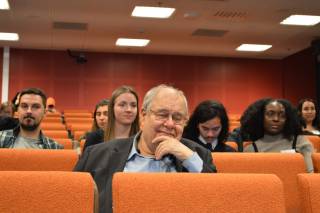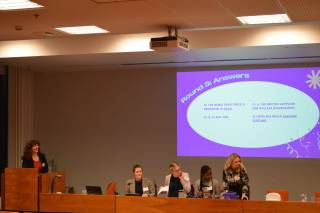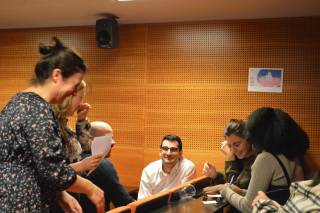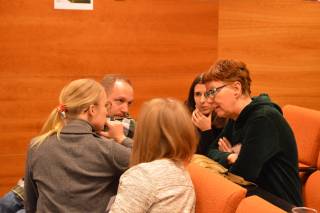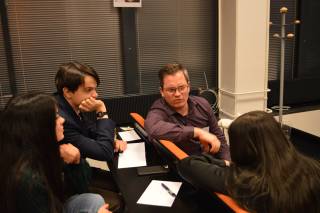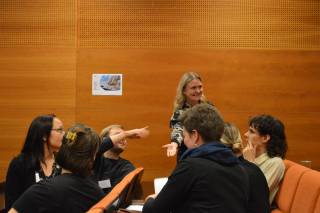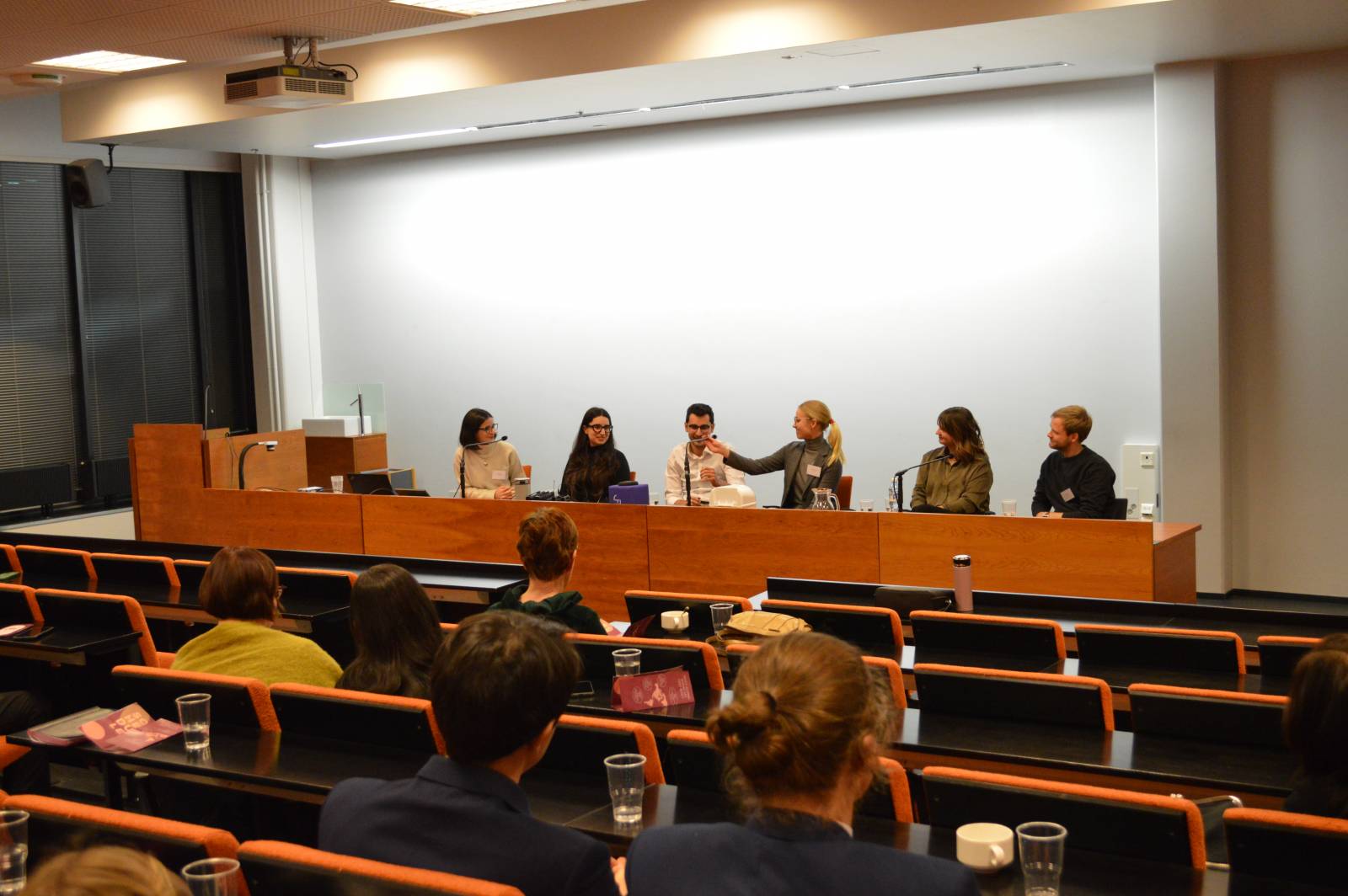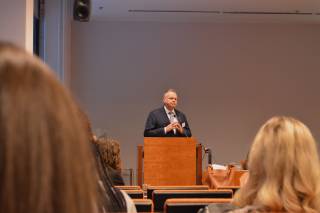
The event commenced with opening words by the Dean of Social Sciences, Juho Saari, congratulating TAPRI on its development over the years and the successful achievement of establishing a Master’s programme. TAPRI’s Research Director Marko Lehti followed, using his time to stress the importance of peace research.
Our seminar continued with a keynote address from Dr. Roxani Krystalli, an assistant professor of feminst peace and conflict studies at the University of St. Andrews School of International Relations. In her address, ‘Teaching Peace in the Feminist Classroom,’ she shared anecdotes of her unique teaching style which includes asking her students to define what peace means to them. As part of her academic focus on the intersection of nature, place, and peace, Roxani’s students keep journals to document their experiences of love and care in their personal lives and natural environment, such as watering plants and nourishing themselves with food. She concluded her address by encouraging us all to not just identify, but create opportunities for care, hope, and love in times of conflict.
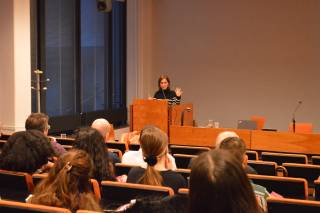
Teaching feminist peace is an invitation to think more imaginatively about the meanings of peace, the spaces in which peace is made, and the actors who play a part in building it.
– Dr. Roxani Krystalli
Dr. Roxanna Sjöstedt, the director of peace and conflict studies at Lund University, delivered the second keynote address of the day. In her talk, “Researching Peace and Conflict in a Turbulent World,” Dr. Sjöstedt emphasized that research is a continuum: all academics are engaged in a continuous learning process that seeks to understand the turbulent world we live in. She discussed the unpredictability of the world’s events and the lessons we have learned from the COVID pandemic, stressing the importance of keeping peace and conflict research an adaptive field, ready to evolve as needed. She cautioned us against over-predicting and advised us to approach the field of peace and conflict research with humility and openness to unpredictable events.
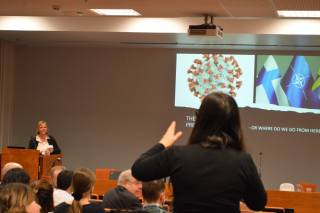
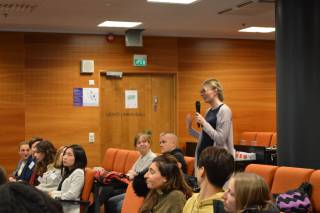
The inspiring keynotes left us all thinking critically about the current and future states of the field, which allowed us to transition naturally to a panel discussion with some of the PEACE programme’s alumni. Joined by Armenak Tokmajyan (2012-14), Giovanna Sanchez-Nieminen (2016-18), Lydia Taylerson (2016-18), Rasmus Bellmer (2017-19), and Tyyne Karjalainen (2017-19), the panel helped paint a picture of what the future could look like for current PEACE students.
Moderated by PEACE student Anush Petrosyan, the alumni reflected fondly on their time in the PEACE programme and the lessons they learned from their studies. As they shared how they navigated their post-graduate journey, they advised current students to nurture their interests and find something they’re passionate about and devote themselves to it. 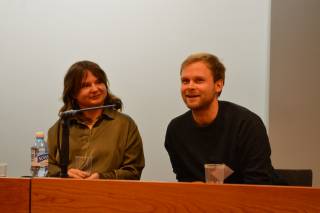 Tyyne Karjalainen, a Research Fellow at the Finnish Institute for International Affairs, noted that employers look for passion and knowledge, and thus encouraged students to look beyond merely checking off certain boxes to appease employers. Armenak Tokmayjan, a non-resident fellow at the Carnegie Middle East Center, wisely reminded us all not to wait to find the right time to read, as a professional career may provide less flexibility.
Tyyne Karjalainen, a Research Fellow at the Finnish Institute for International Affairs, noted that employers look for passion and knowledge, and thus encouraged students to look beyond merely checking off certain boxes to appease employers. Armenak Tokmayjan, a non-resident fellow at the Carnegie Middle East Center, wisely reminded us all not to wait to find the right time to read, as a professional career may provide less flexibility.
After the thought-provoking lectures and panel, our participants were ready to wind down and have some more fun. Current PEACE students led the audience in a quiz to test their trivia on TAPRI, the PEACE programme, the peacebuilding field, and Finland. TAPRIans, students, alumni, and friends worked together to compete for the prize before continuing the celebration over wine and snacks.
Article by Julie Olesky. Photos by Anush Petrosyan.
